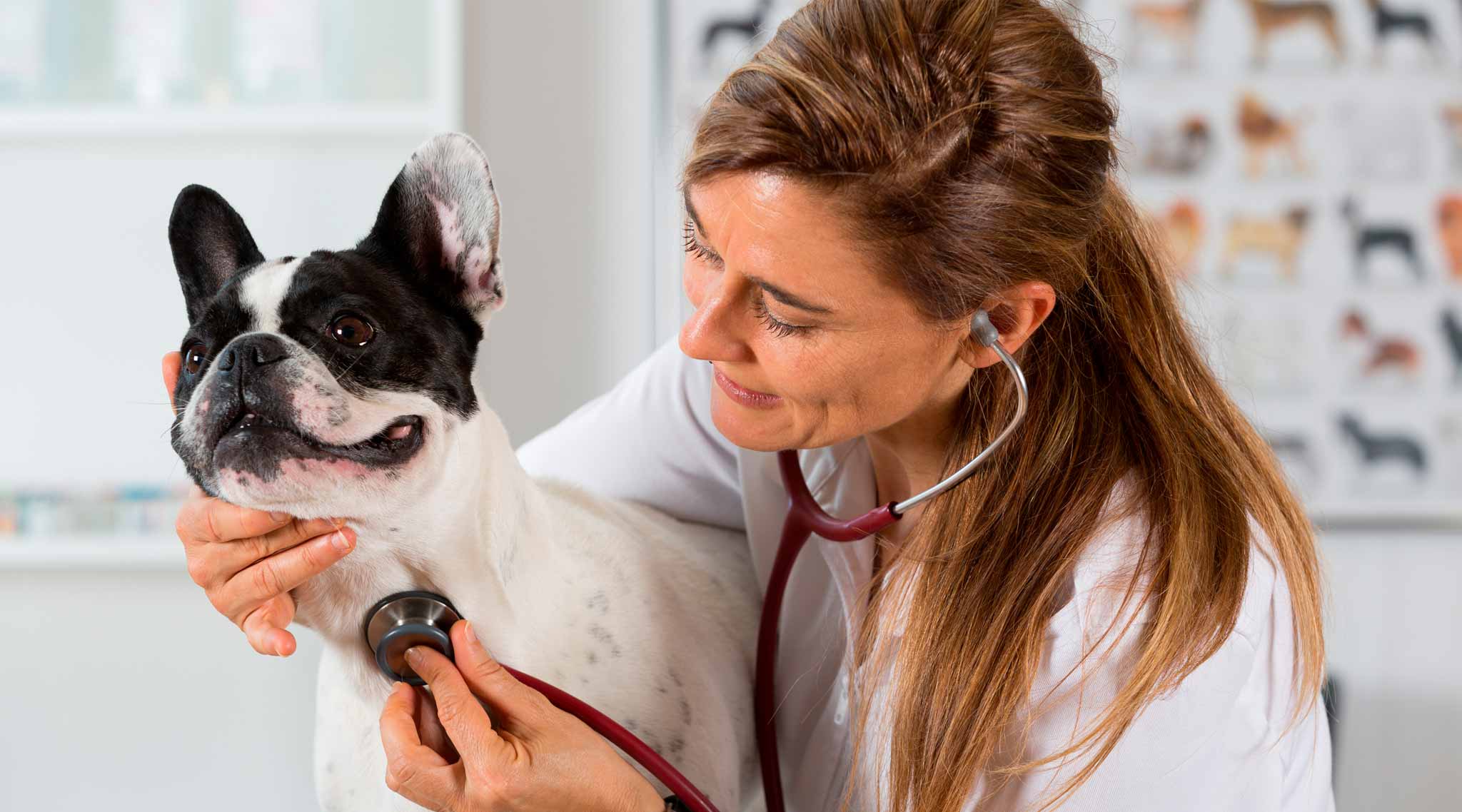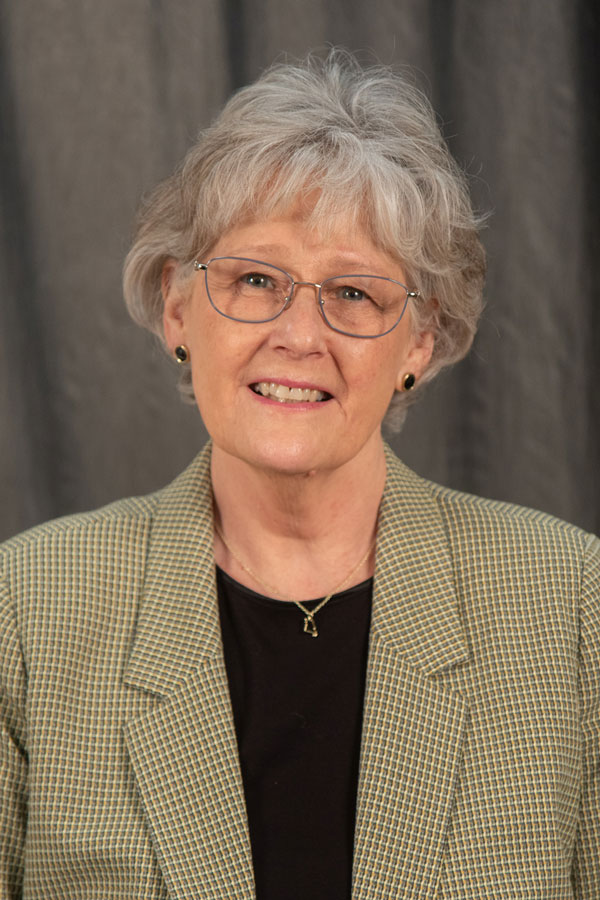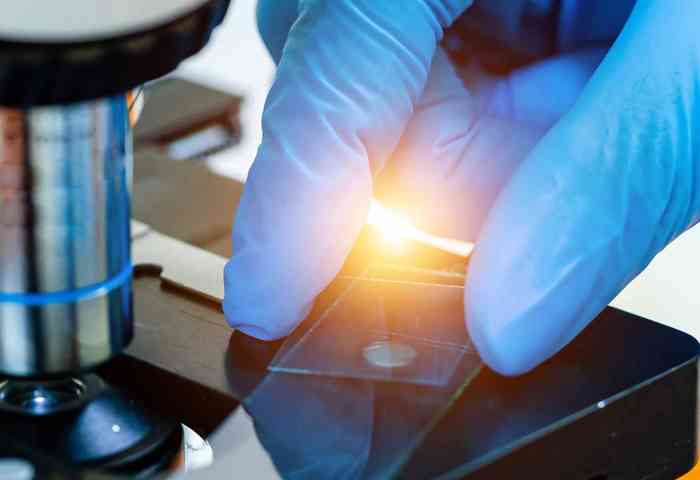Get started with Mizzou
Apply hereMaster of science
Starting from your undergraduate degree, you pursued veterinary science to help animals of all types thrive. Your knowledge, coupled with your steadfast drive, paved the way toward a career as a veterinary technician or veterinarian. Day after day, you assist pets, livestock and their owners directly — whether through a private practice, in the agriculture industry or as a mobile clinician serving a wider area.
Yet, while you’re there for tick season, vaccinations and awareness campaigns, you strive to grow your influence. That might be through research shaping how veterinarians deliver care or the medications and treatments they recommend. Or it could be in higher education, where you instruct the next generation of professionals on animal-specific anatomy and pharmacology. As you plan your next move, Mizzou Online's master of science in biomedical sciences with a concentration in veterinary sciences enriches your analytical and pedagogical foundation in preparation for these career paths or doctoral studies.
This flexible program presents a detailed, comprehensive perspective of animal health. You’ll delve into the cellular and chemical building blocks of anatomy, physiology and pharmacology and advance your studies in molecular biology, endocrinology and toxicology. Then, for a thesis or project prepared for publication, you’ll draw from your background to tackle a problem and formulate an original solution.
If you are a veterinary professional whose master's program was discontinued, it may be possible to complete your degree through Mizzou Online's veterinary programs. Please contact Dr. Laurie Wallace (wallacela@missouri.edu), director of Mizzou's online veterinary programs, if you think you may qualify.
Not ready to dive into a full master's program? Mizzou also offers an online graduate certificate in veterinary science, allowing you to advance your career and continue your education without pursuing a master's degree.
About the online master's in veterinary sciences
Job market projections illustrate potentially above-average growth across the veterinary science field over the next decade. Demand, however, isn’t uniform.
As the catalyst for this trend, more people own pets than they did 30 years ago. A higher number of cats, dogs and exotic animals per household has driven requests for routine services — and the veterinarians and technologists there to perform them. In response, veterinary schools and training programs require more instructors equipped with the education and field perspective to introduce related scientific concepts, handling and treatment methods to future graduates.
In parallel, the medical field continues to examine the relationship between animal and human health — from diseases passed through contact to the foods we consume. As a result of this interest, job opportunities for veterinary researchers have surged. In addition to discovering new drug therapies and treatments, these professionals play an integral role in connecting outbreaks among pets or livestock with population health trends.
In helping you shift gears beyond direct care, the online master’s in veterinary sciences program:
- Immerses you in intensive research training, strengthening what you know about cellular biology and how animals respond physiologically.
- Repositions your knowledge for the classroom, research lab or managing a clinic.
- Highlights the relationship between scientific concepts and the care animals receive.
- Lets you expand your skill set while continuing to support your clients as an independent or industry clinician.
- Creates a stepping stone toward a doctorate — a key credential for entering the academic field.
- Consists of fully online courses taught by award-winning faculty-scholars who contribute to cardiovascular, reproductive health, exercise and more biomedical disciplines.
Quick facts
Official name
Master of Science in Biomedical Sciences with an emphasis in Veterinary SciencesCampus
Program type
Master's degreeAcademic home
College of Veterinary MedicineDelivery mode
100% onlineAccreditation
Higher Learning CommissionCredit hours
30Estimated cost
$16,539.00*This cost is for illustrative purposes only. Your hours and costs will differ, depending on your transfer hours, your course choices and your academic progress. See more about tuition and financial aid.

Career prospects
Career prospects
You’ve already entered a high-growth field: based on Bureau of Labor Statistics data, clinics, agriculture, research labs and similar settings may hire 20% more veterinarians and 21% more veterinary technicians through 2032.
The online master’s in veterinary sciences harnesses your passion and commitment while giving you an edge in the following sectors or occupations:
- Academic research
- Animal feed companies
- Governmental agencies
- Pharmaceutical industry
- Veterinary journalism
- Veterinary medical industry
Program structure
The online master’s in veterinary sciences program is 100% online, and no campus visits are required. Classes are semester-based. You’ll take one or two courses at a time and finish the program in three to four years.
You’ll select from one of two formats:
Thesis: Structure and conduct original laboratory research — including securing external funding — in preparation for doctoral studies.
Non-Thesis: For instructional and supervisory positions, contemplate a topic relevant to the veterinary field, develop a substantial project built on research and publish your findings in a peer-reviewed journal.
Course work covers
In addition to biomedical science topics, the program explores:
- Cytology, cellular biology, hematology and cellular response
- The history and principles of toxicology
- The influence of disasters on animal populations
- Best practices for teaching veterinary medicine
- How animals respond to internal and external stressors throughout their lifespan
- Veterinary pain management and wound physiology
Review all requirements for the online master’s in veterinary sciences program.
Delivery
100% onlineCalendar system
Semester-basedTypical program length
3-4 yearsTypical course load
1 or 2 classes each semesterAccreditation
The University of Missouri is accredited by the Higher Learning Commission, one of six regional institutional accreditors in the United States.
Faculty spotlight

Laurie Wallace earned her doctor of veterinary medicine degree from Kansas State University. Dr. Wallace continued her veterinary training through an internship in food animal medicine and surgery at the University of Illinois, and a large animal internal medicine residency/master’s program at the Western College of Veterinary Medicine, University of Saskatchewan, Canada.
She began her career at the University of Missouri as a faculty member in the Food Animal Clinic at the College of Veterinary Medicine in 1986 and became the director of veterinary online programs in 2018. Her focus areas have always been related to education and teaching, particularly in veterinary medicine and STEM.
